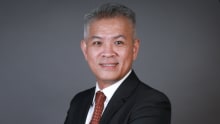There’s no HR playbook, the role is broader and deeper now: Silicon Labs’ Serena Townsend

A growing number of employees today expect more from their employers in terms of providing individual flexibility, fostering an inclusive company culture, responding to world events, supporting mental health, and personalising the employee experience. This is a mammoth task for corporations. Providing these expectations and future-proofing organisations in an environment of uncertainty and shifting priorities remains a challenge. “If the last two years have taught me anything – the goal shouldn’t be to futureproof the organisation, as it’s impossible to predict the types of problems coming our way,” said Serena.
The chief people officer at Silicon Labs, Townsend has over 25 years of experience in technology organisations. Serena earlier held HR leadership positions at companies including Samsung Austin Semiconductor and HomeAway (Expedia).
Here are the edited excerpts.
How are organisations reinventing their talent strategy in the wake of a mass exodus of talent and a tight labour market? How do you see the larger transformation of talent strategies?
Employees have absorbed a remarkable amount of change and disruption over the last two years. Nobody knows where emerging labour market trends will settle. Still, we know that employee needs and expectations are changing fundamentally. There is also a greater focus on personal flexibility and wellness. Companies that understand that and adapt their value propositions will succeed.
Gimmicks don’t work long-term for attracting and retaining talent. Know your values. Build strong company culture fundamentals. Listen and respond authentically to your employees. Recognise and appreciate great work.
In the post-pandemic world, the use of AI and automation has increased manifold and businesses are exploiting next-gen tech to improve efficiency and handle increased customer demand and expectations. How do you see the impact of next-gen tech such as AI and automation in the Human Resources Department?
There is a lot of opportunity in the HR space to leverage technology and automation to improve the quality of service and increase efficiency. We’ve seen trends towards shared service models, automating routine tasks, enabling employee and manager self-service, and predictive modelling to do some cool new things, like identifying potential attrition risk and understanding possible bias in decision-making.
The most important starting place for innovation is good human-centred design. What problem are you trying to solve? Begin with designing a great employee experience and an effective process, and then find the tools and systems that support that, not the other way around.
Organisations must balance automation with human connection. We know that connection and community are fundamental needs and that personal interactions are key to building a culture of inclusion and belonging. If your new hire only interacts with a bot, it’s more difficult for them to feel welcomed into the organisation, so it’s critical to keep the employee experience top of mind.
How is the role of HR evolving in the wake of remote work practices, a rise in data, and a focus on inclusive culture and employee experience?
We are in the middle of a workplace transformation. There’s no HR playbook that we have experienced over the past years, and the role of HR is changing inside organisations to be broader and deeper than ever before.
Employees are asking for more support and expecting a lot more from employers in terms of providing individual flexibility, building an inclusive company culture, responding to world events, supporting mental health, and personalising the employee experience.
It’s critical to understand the world around you, your industry, your business, your organisation, and the variety of employee needs to design and roll out programmes that have the most impact. You must continuously invest time in all areas to be a great business partner and to offer relevant counsel.
As a global talent leader, what has been your core focus in the hybrid work era? How do you measure progress?
Keeping our company's value of “do the right thing” top of mind. To us, that means providing flexibility and personalised solutions to employees as much as we can, as we all navigate the pandemic and new pressures on individuals/families/communities.
Employees need different things at different times, and there is no one-size-fits-all solution today. This is especially true for a global organisation like ours.
We measure progress through annual and quarterly employee experience surveys, inclusion assessments, focus groups, leadership forums, and regular performance and development conversations. Our ability to attract and retain talent is also a key indicator of our progress.
What are the top challenges and opportunities that you see in the up-skilling and re-skilling workforce today? Can you share insights about your initiatives around the same?
Like most growing global tech companies, we have a continuous demand for top talent and there is a limited supply. It’s a losing strategy to expect to grow long-term by only hiring experienced talent.
We have robust pathway programmes where we partner with local high schools and universities to build STEM skills and provide career opportunities to students to excite them about our industry, and so that we can build and grow the overall talent pool.
Internally, our Silicon Labs University initiative offers live, online, and on-demand courses to help build skills and capabilities in technical and professional development areas. This provides benefits to our employees who care a lot about their career growth and continuous learning, and it also helps our organization to strengthen core capabilities that are critical to our long-term success.
As an HR leader, what role are you playing to futureproof your workforce?
If the last two years have taught me anything – the goal shouldn’t be to futureproof the organisation, as it’s impossible to predict the types of problems coming our way. Focus on building organisation resilience and leadership capability so that we are better at solving new and unexpected problems in creative ways to work through the change curve at a faster pace, and have trust in each other and the company so that we can weather hard things.
What are your company priorities and how do you align this with employee expectations?
Silicon Labs is a respected leader in the large and growing Internet of Things market. This is a space that used to be unknown to people and now it's part of everyone's everyday lives and is expected to be some of the fastest growth in technology in the industry for the coming decade. We are bringing together some of the most innovative, skilled, and creative talent from around the world to meet this challenge.
It’s important for me (and all leaders) to understand our overall business strategy, people trends influencing our space, unique strengths of our culture that create tailwinds for us, the changing needs of our employees, and the pace at which our organisation can absorb change.
It’s important to communicate often and transparently with employees through regular company meetings, town halls, leadership forums, all-hands, company intranet, and other channels on what’s happening in our market, how our business is doing, and how our customers and products are doing. This level of transparency builds trust with our employees that we are sharing what we can and that we are planning responsibly. We also regularly share the results of our engagement surveys, actions we are taking, and progress we are making towards people and culture-related goals.















